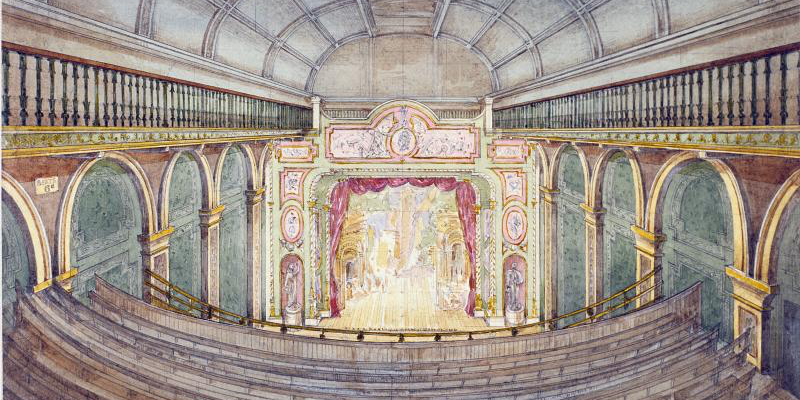Meet Charles! In this blog post, Charles Cook, a visiting student from RMIT in Australia, reflects on his day spent at the Katrine Prince Lecture: Knowledge Without Frontiers: Arts and Sciences in the Enlightenment.
Thanks to the University of Westminster’s education abroad program, I was lucky enough to attend this week’s Twelfth Annual Katrine Prince Memorial Lecture. The Lecture took place in the newly refurbished Regent Street Cinema. This was my first, but certainly not my last visit to the historic and beautiful venue. It is associated with the University of Westminster’s Regent Street Campus.
The topic of this year’s lecture was, ‘Knowledge without frontiers: Arts and Sciences in the Enlightenment’. It was an extreme honour and privilege to have two highly acclaimed and distinguished speakers for the day, in, Professor Robert Fox, Emeritus Professor of History of Science at Oxford University and Alan Morrison, Senior Research Fellow of the University of Westminster. The two and a half hours of extremely engaging and interesting presentations flew by, and I was able to learn an enormous amount from the two eminent speakers.
Professor Robert Fox created a timeline for the audience, and took us through the years of the Enlightenment, starting with the great, Isaac Newton. He discussed the ideas and methods behind the periods cultural shift and way of thinking. This shift was the Enlightenments rejection of superstition and blind adherence to authority, to then favour critical ways of thinking founded on rationality as the touchstone of truth, hence the periods other nickname ‘The Age of Reason’. Professor Fox presented the defining scientists and texts of the period that followed Newton’s 1687 Principia that were the driving force behind the cultural shift and change in thinking. In particular, the mid eighteenth century’s French publication, the ‘Encyclopédie’. Published through many volumes, the Encyclopédie covered a variety of fields and topics that unveiled truths by reason, neither by authority, theology nor the Pope, as done so in the previous centuries. As the century progressed, exchanges through correspondence and the printed word, and in social settings such as learned societies, salons, coffee-houses, and public lectures helped science to assume an ever more prominent place in the literate culture of Europe and propel itself into all of society. Professor Fox also discussed the establishment of the Royal Society of London and its development throughout the period. The society adopted a Latin motto that sums up the movements change in thinking, ‘Nullius in verba’, meaning ‘Take nobody’s word for it’. ‘It is an expression of the determination of Fellows to withstand the domination of authority and to verify all statements by an appeal to facts determined by experiment.’
Alan Morrison then carried on presenting how the Enlightenment’s quest for universal knowledge and the period’s emphasis on observation and empirical thinking shaped the visual arts of that period. Not only showing how the visual arts evolved and expanded from this new age of reason, Mr. Morrison discussed the key ideas and aspects of the growing European discourse on the role that the visual arts had played in the Enlightenment.
The afternoon concluded with tea, scones and champagne in our University’s Fyvie Hall.
I am very grateful and glad to have been a part of this wonderful afternoon, where I gained new knowledge, interest and intrigue that I will have with me for life. I have now also added a visit to Isaac Newton’s resting place at Westminster Abbey to my London to-do list.
Thanks to the Education Abroad team at the University of Westminster!
